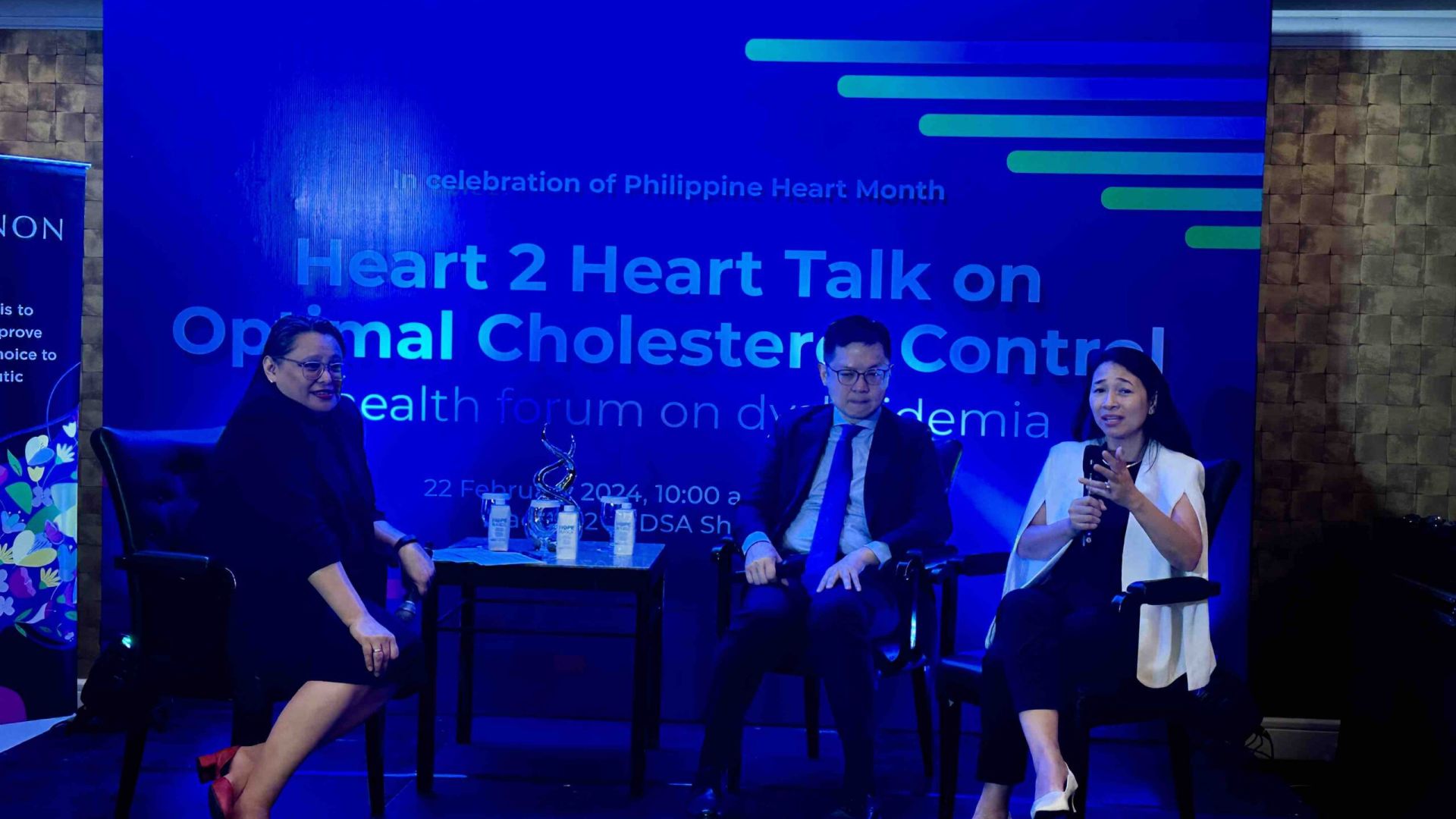In celebration of the Heart Month of February, healthcare company Organon Philippines is spearheading the “Heart 2 Heart Talk on Optimal Cholesterol Control,” focused on raising public awareness about effectively managing Dyslipidemia and how Filipinos can protect their heart from the long-term impacts of high cholesterol levels.
Renowned lipid experts Dr. Pipin Kojodjojo, a cardiologist and electrophysiologist from Singapore, and Dr. Louella Santos, the current President of the Philippine Lipid and Atherosclerosis Society (PLAS), are leading the event to highlight critical research and practical tips to better control cholesterol and minimize the risks of heart diseases.

Dyslipidemia refers to abnormal, unhealthy levels of cholesterol in the body. When too much bad cholesterol circulates in the blood, it causes build-ups of fatty plaques along the walls of your arteries, which can clog and disrupt the normal blood flow to the heart.
If left unchecked, this could lead to debilitating and fatal conditions such as heart disease, heart attack, stroke, and other severe complications.
Recent statistics from PSA have shown that heart disease accounts for 124,182 cases or more than 18% of all deaths across the country, claiming more lives than any other illness.
Alarmingly, the data reveals millions of Filipinos as early as 20 years old are unknowingly suffering from high cholesterol levels, which puts them at even greater risk for developing heart disease.
According to the 8th National Nutrition Survey, 1 out of every 2 Filipinos have borderline high cholesterol levels, making Dyslipidemia a hidden public health threat in young adults and people who are at the height of their careers.
Who stands vulnerable?
Chronic stress and poor lifestyle habits like smoking, unhealthy diet choices, and inactivity increase harmful cholesterol levels even in people in their 20s and 30s. And because Dyslipidemia shows no clear symptoms at first, many young adults remain unaware of the silent damage accumulating in their arteries over time.
Regardless of age or family history, getting a complete cholesterol test is critical to optimizing health and catching high cholesterol early. Addressing cholesterol now, not later, gives you the power to prevent heart disease and irreversible damage to your arteries.
Restoring control over your health Patients can help lower their lipid levels with lifestyle changes, medications, or a combination of both. In certain cases, a health care provider will recommend a trial of lifestyle changes before recommending a medication. The best approach will depend on an individual’s situation, including your lipid levels, health conditions, risk factors, medications, and lifestyle.
Although a healthy lifestyle is the first defense against high cholesterol, sometimes diet and exercise aren’t enough. Patients might also need to take cholesterol medications to help:
· Decrease one’s low-density lipoprotein (LDL) cholesterol, the “bad” cholesterol that increases the risk of heart disease
· Decrease one’s triglycerides, a type of fat in the blood that also increases the risk of heart disease
· Increase one’s high-density lipoprotein (HDL) cholesterol, the “good” cholesterol that offers protection from heart disease
Healthcare professionals might suggest a single drug or a combination of cholesterol medications. Cholesterol lowering drugs include Statins, cholesterol absorption inhibitor, PCSK9 inhibitors, among others.
Remember: Every case of heart disease is different. Talk to your doctor to get the treatment and care you deserve. Staying faithful to your medication routine could save you and help you live a more fulfilling life free from complications.
This health forum highlights Organon Philippines’s steadfast commitment to educating the public about the dangers of Dyslipidemia and cardiovascular diseases. Organon aims to drive positive health actions that can elevate care for millions of patients nationwide.





